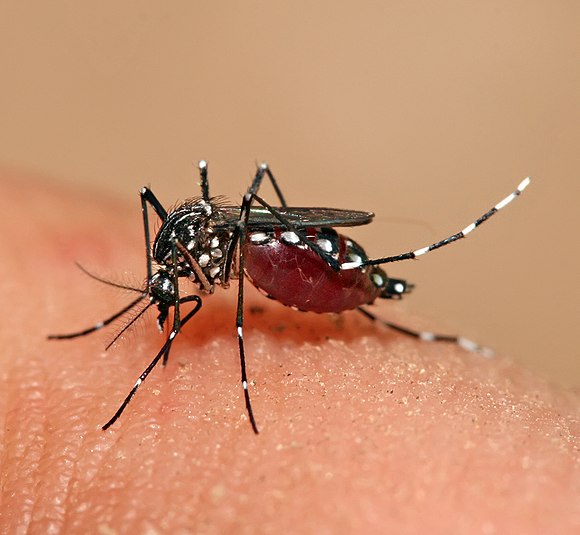

KATHMANDU: Mosquitoes are among the most irritating pests in the world and carry a variety of fatal diseases that can severely impact human health. From dengue fever and malaria to the Zika virus, mosquito-borne illnesses can result in serious, sometimes fatal, consequences.
Understanding how mosquitoes affect our health is crucial for preventing and reducing the risk of these diseases. In this article, we will explore the health risks posed by mosquitoes and how to protect ourselves from their harmful effects.
Mosquitoes lay their eggs in standing water, so eliminating all sources of stagnant water around and inside your home is essential. Check and empty items like flowerpots, used tires, buckets, and gutters where water can collect. If you store water in containers, make sure to cover them properly to prevent mosquitoes from breeding.
Installing mosquito nets on beds and mesh screens on windows and doors is an effective way to keep mosquitoes from entering your home. Opt for fine mesh screens to prevent even the smallest mosquitoes from getting inside. If possible, install door closers to keep mosquitoes from entering when doors are left open.
Use mosquito repellents on exposed skin to protect yourself, especially at dawn and dusk when mosquitoes are most active. You can apply mosquito repellent creams, sprays, or essential oils such as citronella, neem, and lavender to keep mosquitoes away.
Citronella candles and mosquito coils can help repel mosquitoes, particularly in outdoor spaces. However, these should be used in well-ventilated areas to avoid inhaling too much smoke. Indoor protection can also be provided by electric vaporizers and plug-in repellents.
A clean environment can help reduce the mosquito population. Cut back long grass, eliminate clutter, and dispose of trash regularly. Mosquitoes tend to seek shelter in dark, damp places, so maintaining good sanitation will deter them from inhabiting your space.
There are various mosquito traps available that attract mosquitoes through carbon dioxide, heat, or light, and then trap them. These can be effective in reducing the mosquito population when used correctly.
Certain plants are natural mosquito repellents. Planting these around your home and garden, such as citronella, basil, marigold, and peppermint, can help keep mosquitoes away. These plants release odors that mosquitoes find repulsive, driving them away from your living area.
Wearing long-sleeved shirts, long pants, and socks can provide additional protection from mosquito bites. It is advisable to wear light-colored clothing, as dark colors attract mosquitoes.
In areas heavily infested with mosquitoes, indoor fumigation or fogging with insecticides can help eliminate mosquitoes. If you choose to fog indoors, make sure to observe proper ventilation and safety precautions.
Mosquito control works best when communities act together. Encourage your neighbors to eliminate standing water, clean up, and participate in collective mosquito control activities. Community-wide awareness and prevention efforts can lead to long-term mosquito eradication.
Conclusion
In conclusion, mosquitoes are a significant threat to human health, spreading diseases such as malaria, dengue fever, and the Zika virus. To ensure your home and environment remain mosquito-free, prevention is key. Measures like draining standing water, using screens and mosquito nets, applying repellents, and burning mosquito-repelling candles or coils can significantly reduce mosquito presence.
Maintaining cleanliness, planting repellent plants, wearing protective clothing, and using fumigation or fogging when necessary can further help. By implementing these steps, you can create a healthier and safer environment free from mosquitoes.